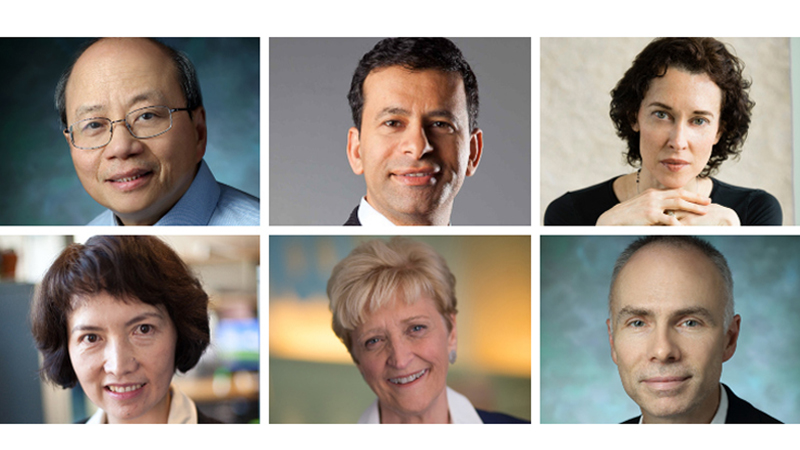Johns Hopkins Faculty Members Elected to National Academy of Medicine
10/15/2018

The NAM is an independent organization of eminent professionals from diverse fields including health, medicine and the natural, social and behavioral sciences. It serves alongside the National Academy of Sciences and the National Academy of Engineering as adviser for the nation and the international community. Through its domestic and global initiatives, the NAM works to address critical issues in health, medicine and related policy. Membership in the NAM is considered one of the highest honors in health and medicine.
New members are elected by current members through a selective process that recognizes people who have made major contributions to the advancement of the medical sciences, health care and public health.
The new members from Johns Hopkins are:
• James Berger, Ph.D., professor of biophysics and biophysical chemistry, Johns Hopkins University School of Medicine; director, Institute for Basic Biomedical Sciences; and co-director, Cancer Chemical and Structural Biology Program, Johns Hopkins Sidney Kimmel Comprehensive Cancer Center. Berger has long studied the fundamental mechanisms of enzymes that control cell proliferation and small molecule inhibitors that target such systems.
• Jennifer Elisseeff, Ph.D., Morton F. Goldberg Professor of Ophthalmology, professor of biomedical engineering, Johns Hopkins University School of Medicine. She is also director of the Translational Tissue Engineering Center. Her research focuses on tissue regeneration.
• Ellen MacKenzie, Ph.D., M.Sc., dean, Johns Hopkins Bloomberg School of Public Health and a Bloomberg Distinguished Professor. A trauma care expert, MacKenzie focuses her research on the impact of health services and policies on the short- and long-term consequences of traumatic injury.
• Martin Makary, M.D., M.P.H., surgical oncologist, professor of surgery, Johns Hopkins University School of Medicine; chief of the Johns Hopkins Auto Islet Transplant Center; and professor of health policy and management at the Johns Hopkins Bloomberg School of Public Health. Makary’s research focuses on the creation and evaluation of health care innovations. He is well-known as the creator of the Surgical Surgery Checklist.
• Xiaobin Wang, M.D., Sc.D., M.P.H., Zanvyl Krieger Professor in Children’s Health; professor in the Department of Population, Family and Reproductive Health, Johns Hopkins Bloomberg School of Public Health and director, Center on the Early Life Origins of Disease. Wang’s work unites biomarkers, clinical medicine, epidemiology and disease prevention.
• King-Wai Yau, Ph.D., professor of neuroscience and ophthalmology, Johns Hopkins University School of Medicine. Yau’s research focuses on the flow of molecular signals that are important to sight and smell. His discoveries have helped advance the understanding of many hereditary blinding diseases that affect these rod and cone cells.
